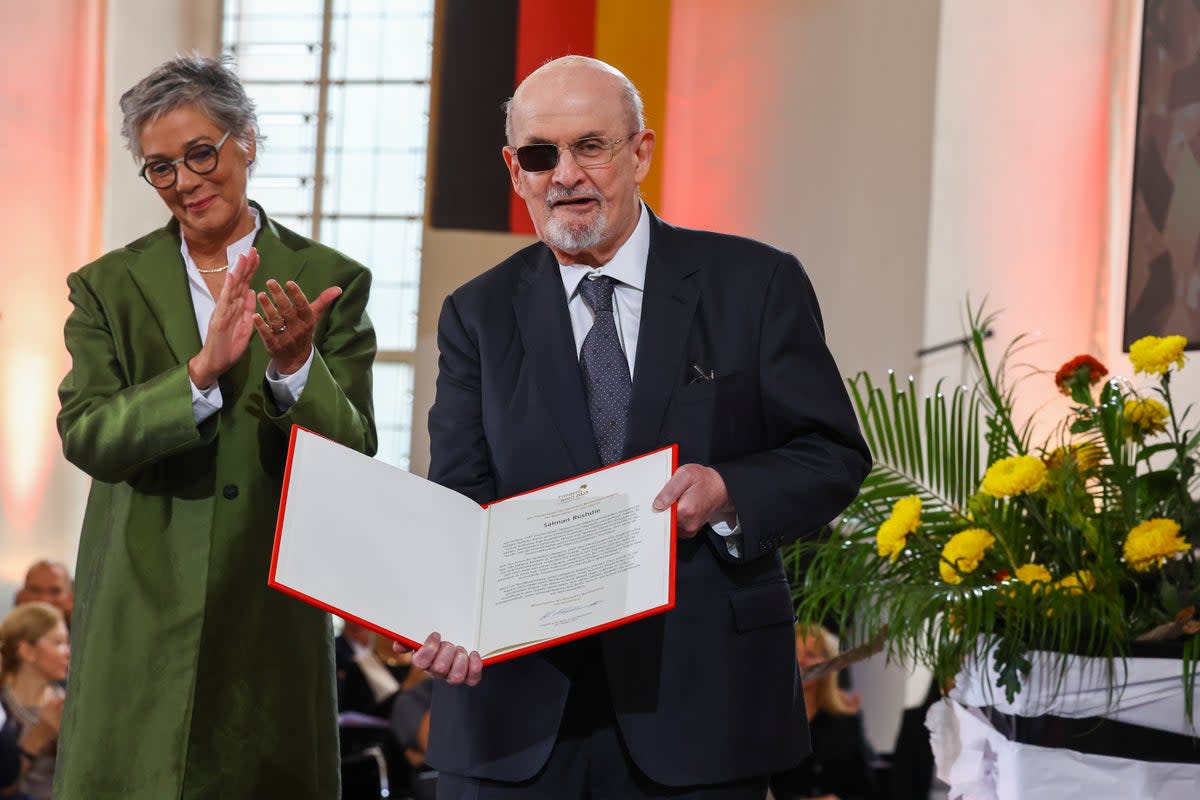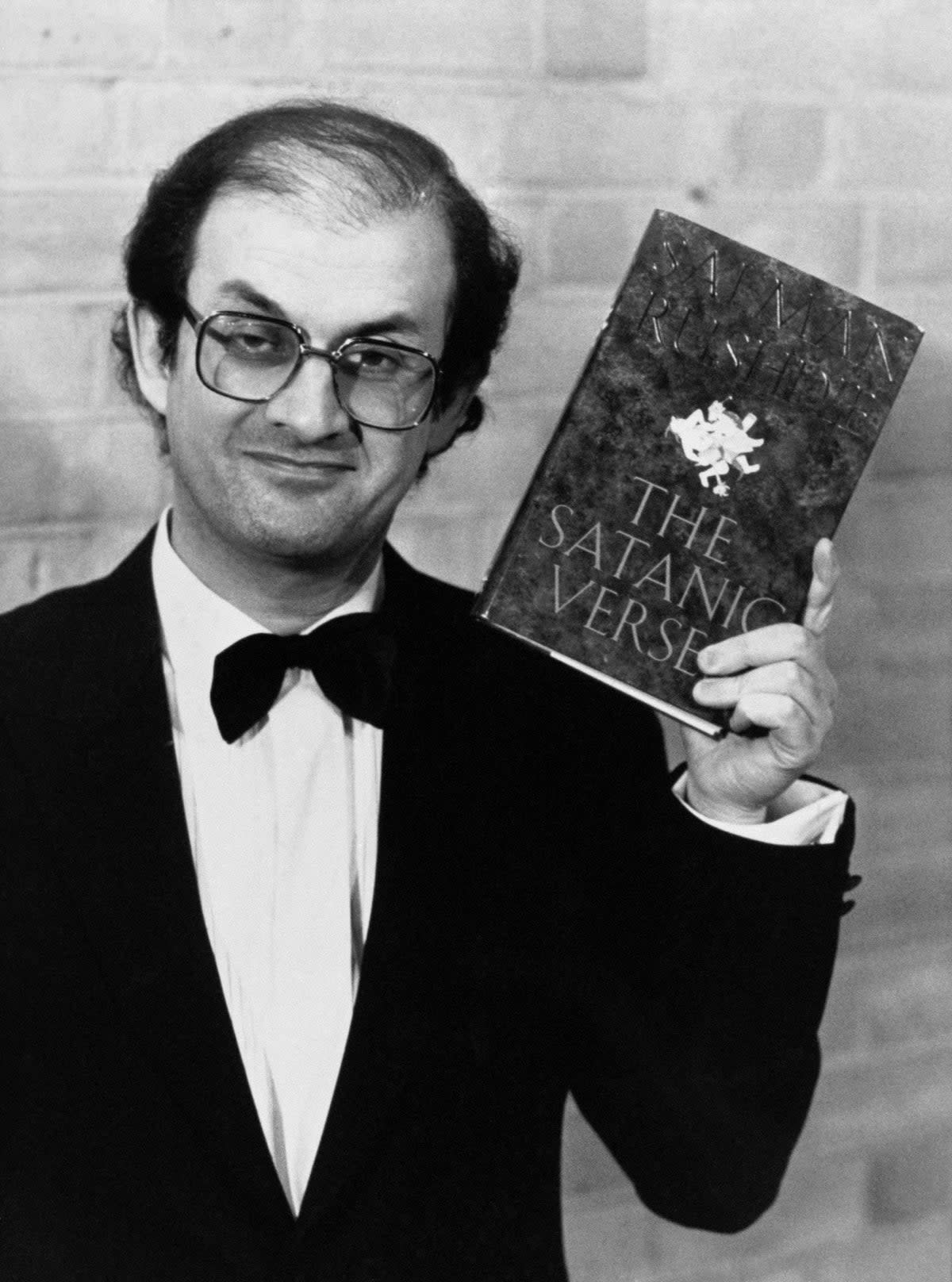Salman Rushdie: Author of Knife and The Satanic Verses reflects on 2022 attempt on his life
One of Britain’s foremost writers, Salman Rushdie has returned to the literary centre stage with the release of his hotly anticipated memoir, Knife: Meditations After an Attempted Murder.
The novel will recount the turbulent period of his life beginning with his horrific attack while preparing to deliver a lecture on free speech.
On 12 August 2022, Rushdie was about to give a talk at the Chautauqua Institution in New York state when an attacker rushed on stage and stabbed him in the neck, eye, stomach, thigh and chest. He underwent treatment in hospital for six weeks, and has been left blinded in one eye and with lost feeling in some fingertips.
The author, who was the subject of global storm after his 1988 novel The Satanic Verses was deemed blasphemous in parts of the Islamic world, has since written about the experience in a bid to expel a creative blockage preventing other works.
Early life
The novelist and short story writer, 76, began his life in Bombay in what was then British India, before moving to Rugby, England, to study at the age of 14 – eventually graduating from Cambridge University with a degree in history.
Rushdie’s writing career, which has been heavily inspired by his Indian ancestry, had humble origins and his first book, Grimus, was released to minimal praise but acknowledged potential in 1975.
While working as a London-based copywriter for brands including Aero (Rushdie is credited with the “irresistibubble” tagline), he wrote the book that would cement his place in literary history, Midnight’s Children.
The 1981 novel not only won the Booker Prize that year but later won the Best of the Booker Prize in 2008.
Then, in 1988, the book that ultimately forced the author into hiding was released, The Satanic Verses.

Controversy and hiding
The Satanic Verses is a magic realism novel that explores the age-old subjects of good and evil.
It features religious figures including the Devil, the Archangel Gabriel, and, of course, the Prophet Muhammad.
The latter proved controversial with Muslim readers, who dubbed the novel blasphemous for its derogatory depiction of the prophet.
The book was eventually banned in various countries, including South Africa and Pakistan.
After sparking a wave of violence that even saw bookshops firebombed, Rushdie was forced into hiding for the best part of a decade.
The outrage was so great that anyone associated with the book’s production also became a target. The writer who translated the novel into Japanese, Hitoshi Igarashi, was stabbed to death 1991 – and the culprit remains at large.
Rushdie, meanwhile, continued to write in hiding and published various other novels, as well as short stories and even a 1990 novel for children, Haroun and the Sea of Stories.
While he did apologise for the offence The Satanic Verses caused, when he eventually stepped into the public eye again, he did so as as a proponent of free speech.
The book has been cited as the inspiration behind numerous acts of violence including a 1989 protest against the text at the American Cultural Center in Islamabad, Pakistan, where six people lost their lives and over 100 were injured.

Free speech
Rushdie became a public figure again after Iran’s government withdrew its formal support of the fatwa against him in 1998.
After the threat against his life lessened, he stepped into the world of film, appearing in the likes of Bridget Jones Diary (2001) and narrating the big screen adaptation of the novel that made him a household name, Midnight’s Children (2012)
Then, in 2012, he published his first memoir, Joseph Anton.
He wrote: “The freedom to express oneself is a fundamental human right that should never be taken for granted.”
2022 stabbing and ongoing trial
But even after the fatwa against was lifted, threats against Rushdie’s life persisted and culminated in the near-fatal stabbing that his the subject of his new memoir, Knife.
The 2022 attack was so severe that he was hospitalised for six weeks and ultimately lost the sight in his right eye.
After a period of recovery, he once again spoke out in favour of free speech, making a surprise appearance at the Pen America gala in New York last year.
He later said at the British Book Awards: “Terrorism must not terrorise us. Violence must not deter us. A luta continua. The struggle goes on.”
The trial against the perpetruator of the attack, Hadi Matar, who has pleaded not guilty, is currently postponed as his lawyer believes the contents of Rushdie’s new memoir could be used as evidence.
